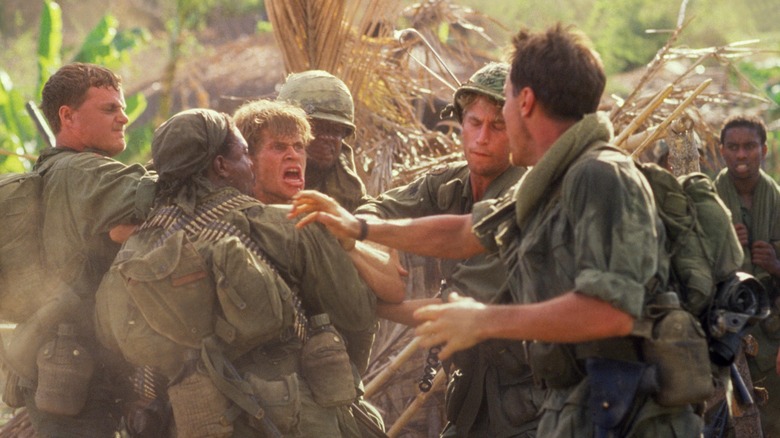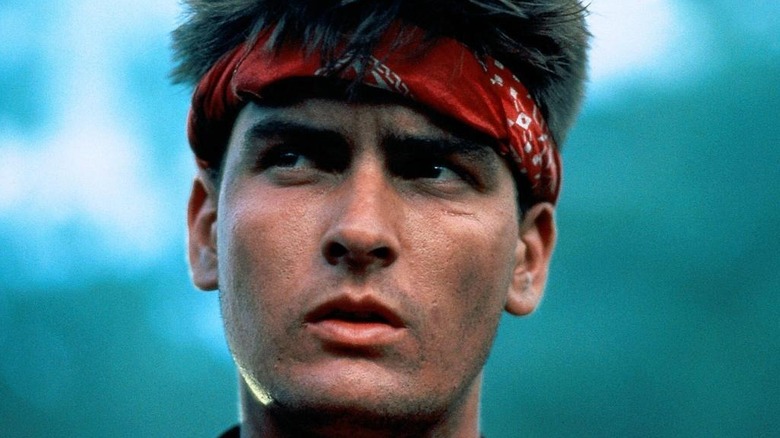The '80s War Movie That Roger Ebert Considered One Of The Best
In America, the 1980s was a decade still reeling from the political turmoil of the prior two decades, and no single event better captured the distrust and ire of the average American, the stratified violence of the Cold War era, or the ideological confusion of the time than the Vietnam War. As such, the '80s gave birth to a bevy of Vietnam films looking at America's invasion from a variety of angles. If we count 1979, "Apocalypse Now" kicked things off with a brutal look at the corrupted morality of the warfighter, and later films like "First Blood" and "Full Metal Jacket" explored both the cruelty of the war itself and the extended global aftermath.
If you'd asked the late film critic Roger Ebert which '80s film best captured the essence of war in the second half of the 20th century, he'd have told you it was 1986's "Platoon," starring Charlie Sheen, Tom Berenger, and Willem Dafoe. The film was directed by Oliver Stone, who was known more as a writer at the time, having penned hits like "Scarface" and "Conan the Barbarian." Stone also wrote "Platoon," which set itself apart from similar fare in the eyes of Ebert by focusing on the abject chaos and lineless warfare of Vietnam.
"He abandoned the choreography that is standard in almost all war movies," Ebert wrote of Stone in his ranking of the top 10 films of the decade. "His combat scenes involve 360 degrees: Any shot might be aimed at friend or enemy, and in the desperate rush of combat, many of his soldiers never have a clear idea of exactly who they are shooting at, or why."
Platoon remains one of the most acclaimed war movies ever
Roger Ebert ranked "Platoon" ninth on his top 10 list for the '80s, behind films like "Raging Bull," "Do the Right Thing," and "Raiders of the Lost Ark." The film won five Oscars, including for Best Picture and a Best Director victory for Stone, who went on a run afterward with films like "Wall Street," "Born on the Fourth of July," and "Natural Born Killers."
While certain aspects of the film have been critiqued over the years, and fairly so, "Platoon" was a big hit, and it's generally still viewed as a well-executed depiction of the mania, disorganization, and brutality of the Vietnam War — things that Stone experienced personally during an extended tour in the army.
"There is no carefully mapped plot to lead us from point to point," Ebert wrote in his "Platoon" review, which aptly sums up the unique pacing of the film. "Anything is likely to happen, usually without warning." While the most famous scene in the film is the dramatic death of Sgt. Elias (Dafoe), it's the less explicit moments that make the film stand out. Even Sheen, years before a series of public scandals would tank his public image, turns in a strong performance here. Perhaps he was channeling some of his father Martin Sheen's experience from starring in "Apocalypse Now."

